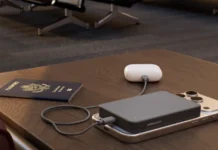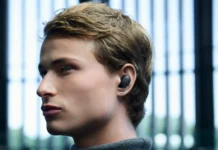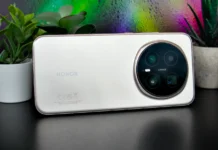Sadly, in this day and age it is more important than ever for parents to keep an eye on their kids. Whether going to/from school, out with friends or just down at the local park, if you are not with them, then you will always be concerned!
As technology gets smarter, smaller and more affordable designers are creating new devices to help parents when their children are not in sight. Last year I covered the groundbreaking, Snowfox, a trackerphone for kids, and next week the team will be at Mobile World Congress in Barcelona showing it off!
This next device can serve many, many purposes and it will be covered for some of these in future articles, although most will agree, the following could be it’s biggest attraction!
Ping – The Worlds Smallest Global GPS Locator
There are plenty of trackers available to consumers today. All different shapes, sizes, Bluetooth or GPS and with different purposes. Ping has cut away all the noise and developed a small single function device with just 2 usable features that could be what parents worldwide have been looking for.

At 34mm in height/width, just 12mm thick and 28g in weight, the Ping packs some serious specs for such a small device.
The battery can last for up to 3 months from a single charge. As it uses GPS, cell and BTLE it has a global range, if it is within range of a cell tower (the same that mobile phones use) then you can locate your Ping within any of the 157 countries it currently works in (see below). Ping is waterproof to 10m and has an embedded 3G Cellular module all concealed within the unit.
Already it should be clear that a small global GPS locator with this spec is ideal to have on your child should they become lost or worse, but how does it work?

When you first get your device you need to download the free app (both Android and iOS will be supported at launch) and assign the device to your child.
They can attach it to their school bag, wear it like a watch, keep it in a pocket or iron on pouch or worn around the neck. At this stage providing the Ping is charged you can now open the app and locate your child whenever you need too! After the initial set up there is even a browser version of the app you can use for tracking.

There are two simple functions your child can use on the Ping themselves. A single click of the button sends a check in to your smartphone. This could be to notify you they have arrived at their destination or safely home. The second function is a panic alarm, double tap the same button and an SOS is sent immediately to your handset.

The big draw for Ping is the GPS technology. Bluetooth only devices need to be within 35 feet of your smartphone to work. Many are tackling this issue by providing last known locations to their app, which does give you a fighting chance of locating it. Some have even built connected networks where if your Bluetooth tracker is out of your range but another user goes past it, the app then updates the last known location for you.
This is real progress but nowhere near ideal if you are using it for your childs safety! The downside of GPS has always been the cost, but Ping have addressed this as well.
The device will retail at $129 and then the yearly cell connection for using GPS is $36 for those in the US and $46 for everyone else, but it gets better!

Ping is currently on Indiegogo for crowdfunding. For a limited time you can pick up a Ping device for $99 and they will cover your first years connection for FREE!! Shipping is free for US and Canadian orders, $20 for orders shipping to the EU, and $30 for the rest of the world.
That is an amazing deal and one every parent should take a serious look at. Ping can serve plenty of different purposes, but for child safety, this device with such connectivity at such an incredible price is a must have.
You can watch the infomercial on their Youtube channel.
Ping will work in 157 countries, these are:
Afghanistan, Albania, Anguilla, Antigua & Barbuda, Argentina, Armenia Republic, Aruba, Australia, Austria, Azerbaijan, Bahamas, Bahrain, Bangladesh, Barbados, Belarus, Belgium, Belize, Bermuda, Bolivia, Bosnia & Herzegovin, Brazil, British Virgin Island, Bulgaria, Burkina Faso, Cambodia, Cameroon, Canada, Cayman Islands, Chad, Chile, China, Colombia, Congo, Dem Rep, Congo, Republic of, Costa Rica, Cote D Ivocre, Croatia, Curacao, Cyprus, Czech-Republic, Denmark, Dominica, Dominican Republic, Dutch Antilles, Ecuador, Egypt, El Salvador, Equatorial Guinea, Estonia, Faroe Islands, Fiji, Finland, France, French West Indies, Gabon, Georgia, Germany, Ghana, Great Britain, Greece, Greenland, Grenada, Guam, Guatemala, Guinea, Guyana, Haiti, Honduras, Hong Kong, Hungary, Iceland, India, Indonesia, Iraq •, Ireland, Israel, Italy, Jamaica, Japan, Jordan, Kazakhstan, Kenya, Kuwait, Kyrgyz Republic, Lao, Latvia, Lesotho, Liechtenstein, Lithuania, Luxemborg, Macau, Macedonia, Malawi, Malaysia, Mau, Ma Lta, Mexico, Moldova, Rep of, Mongolia, Montenegro, Montserrat, Morocco, Mozambique, Nepal, Netherlands, New Zealand, Nicaragua, Niger, Nigeria, Norway, Oman, Pakistan, Palestine, Panama, Paraguay, Peru, Philippines, Poland, Portugal, Qatar, Reunion, Romania, Russia, Rwanda, Rep of, Saudi Arabia, Serbia, Seychelles, Sierra Leone, Singapore, Slovak Republic, Slovenia, south Africa, south Korea, Spain, Srl Lanka, St Kitts & Nevis, St Lucia, Stvin &the Gren, Suriname, Sweden, Switzerland, Taiwan, Tajikistan, Tanzania, Thailand, Togo, Trinidad & Tobago, Turkey, Turks & Caicos, Uae, Uganda, Ukraine, United States, Uruguay, Uzbekistan, Venezuela, Zambia, Zimbabwe






[…] There are plenty of trackers available to consumers today. All different shapes, sizes, Bluetooth or GPS and with different purposes…..Read More. […]
[…] across new technology that is brilliantly simple and just makes perfect sense. The Ping’s greatest purpose I covered on the site but such is its capability of ticking off many different functions, it easily makes this top […]